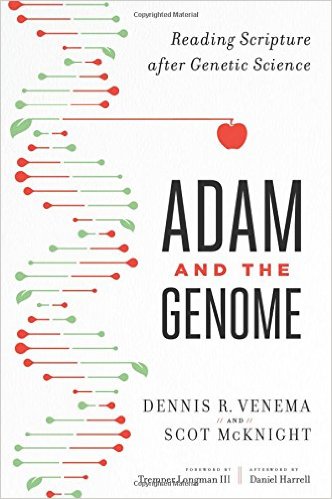Chapter 7 which begins on p. 147 is a helpful review of the mentions of Adam (and sometimes Eve) in intertestamental Jewish literature. Scot is right that they are depicted in various ways, and the story is developed and analyzed in various ways. This is correct. The point I want to make is that in each case, so far as we can tell, the assumption that there was an historical Adam and Eve is the basis of the further development of the tradition depicting Adam at least as an archetype, a progenitor, a bad example etc. And it is worth adding that a prototype, or representative of a people is not the same thing as calling the prototype ‘everyman’.
So I will simply pause to point out the evidence that these Jewish writers clearly assume Adam was a real person: 1) in Sirach he is called the glorious ancestor of Israel, not Israel itself but her ancestor (Sir. 49.16). Adam foreshadows the behavior of Israel. Sirach is not suggesting Adam is just a literary cipher for Israel, so that where you see the term Adam, read Israel, he’s talking about the beginning of the race with Adam; 2) Sirach also blames human sin on a particular human ancestor—in this case Eve (see 25. 15-26)—“from a woman [Eve] sin had its beginning and because her we die”. It is true, but inadequate to say that Sirach’s Adam and Eve is not viewed entirely like later Christian views of the matter. The point is, no one so far as I can see in this literature is viewing Adam and Eve as merely literary figures, or non-historical figures, or ciphers for a whole people. 3) Wisdom of Solomon written just before or early in the NT era, depicts Wisdom personified as having a relationship with Adam and Eve, and protecting them. Wis. Sol. 10.1-2 says “Wisdom protected the first-formed father of the world, when he alone had been created; she delivered him from his transgression and gave him strength to rule all things.” Wis. Sol. 7.1 is even clearer— every human being is a descendant of the first formed person. It is not that the author merely knows of a literary figure in a story. He assumes the story is historically correct about who the first parents were and reasons on the basis of that assumption. 4) Philo (Creation 151), like Sirach blames the woman Eve (not just any woman) for the fall of Adam. He is viewed as happy and virtuous before the femme fatale shows up. Of this sort of misogynism the author of Genesis knows nothing, so of course there are interpretations and misinterpretations of Adam and Eve in early Judaism, but none of them involve the notion ‘these are merely literary figures, not real people’. Philo asserts Adam is the first father of the human race, the ancestor of the race (Creation 79, 136). 5)Jubilees provides us with some more fanciful elaborations of the story, for instance in its insistence that Eve was shown to Adam in the second week of existence, but he only enters the garden 40 days later, and she enters it 80 days later in order for her to be pure enough (Jub. 3.1-12). 6)Pseudo-Philo in Biblical Antiquities 13.8 complains that Adam was persuaded by his wife who in turn was deceived by the serpent and so death was ordained for the generations of human beings. The presupposition here is that the historical cause of death ever since is Adam and Eve. 7) Josephus simply retells the Genesis story with some Platonic sprinkles—referring to God fashioning Adam from dust and inserting into him spirit and soul (Ant. 1.34). Eve is formed from Adam’s rib, but as Scot says (p. 163)is not seen as his equal; 8) one of the characters in 4 Ezra wants to blame mostly on Adam and on the fallenness of humans for sin. The sin of Adam has implications for all humans (cf. 4 Ez. 3.4-7; 7.127-28). Adam is clearly said at 3.7 have physical descendants. At 7.18 we have the famous line “the fall was not yours [Adam’s] alone, but ours also who are your descendants.” Now I would say that this both/and kind of approach is also what we find in Rom. 5.12-21. In the 2nd century A.D. document 2 Baruch we finally hear the notion each of us has become our own Adam. But in none of this literature is Adam ‘everyman’, any more than Eve is ‘every woman’ though there are some hints in the latter direction in Sirach.












